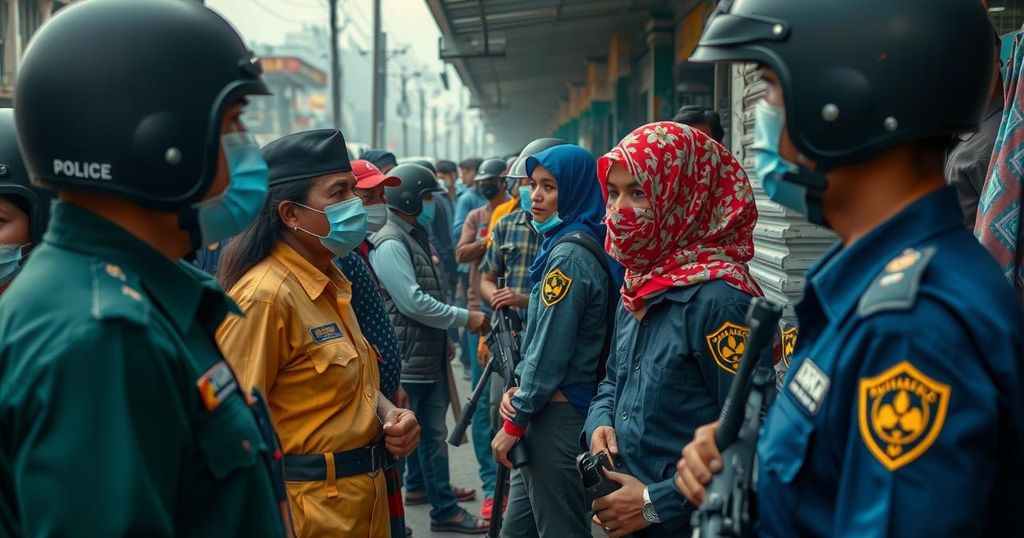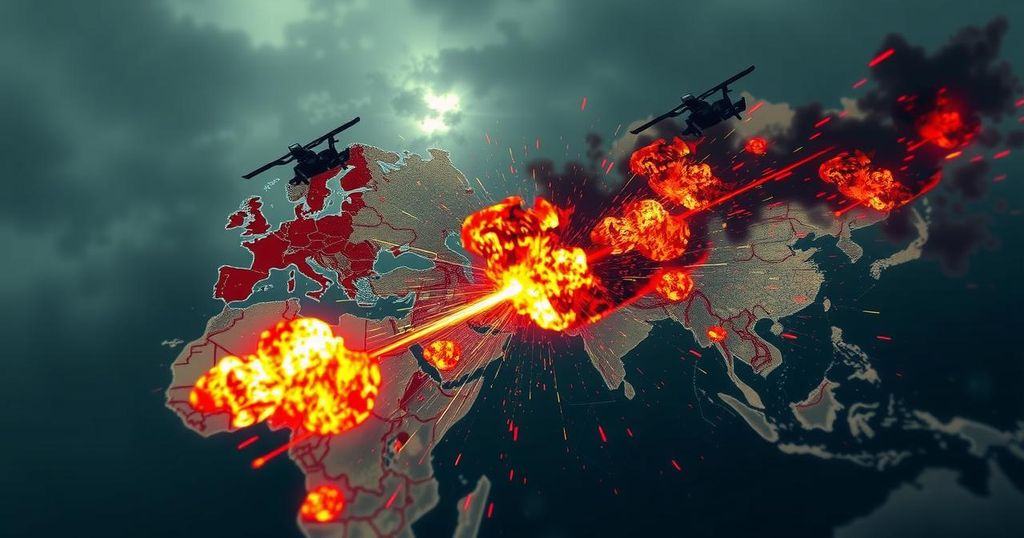The One-Year Mark of Sudan’s Civil War: A Looming Famine amidst Humanitarian Crisis
One year has elapsed since the outbreak of the civil war in Sudan, which has resulted in the deaths of thousands and displaced approximately 8 million individuals from their homes. The dire combination of insufficient humanitarian aid and deteriorating living conditions has brought the population to the brink of famine.
The conflict erupted in mid-April of the preceding year, stemming from escalating tensions between the Sudanese military, led by General Abdel-Fattah Burhan, and the infamous Rapid Support Forces (RSF), commanded by General Mohammed Hamdan Dagalo. These tensions culminated in violent clashes on the streets of Khartoum, eventually spreading throughout this northeastern African nation.
A mere eighteen months prior to the inception of the war, both generals had instigated a military coup, overthrowing an internationally recognized civilian government that had been positioned to guide Sudan towards democratic governance following the military ousting of long-standing dictator Omar al-Bashir in 2019 as a result of popular protests against his three decades of Islamist-backed rule. This coup and the subsequent civil war significantly dashed the aspirations of the Sudanese populace for enduring democratic governance, following decades of military and Islamist dominance that had transformed Sudan into a near pariah state.
In recent months, the conflict has receded from the global spotlight, overshadowed by the devastating war between Israel and Hamas in the Gaza Strip. Nevertheless, displaced Sudanese citizens continue to struggle for survival. In Omdurman, the country’s second-largest city, numerous displaced individuals inhabit a former school building, fashioning makeshift shelters within. Seham Saleh, a local resident, underscores her persistent struggle to adequately nourish the children in her care, stating that the available food options consist mainly of “lentils, rice, and porridge.” Nonetheless, she expresses a modicum of gratitude that a humanitarian organization has begun providing meals and nutritional supplements for children under five years of age.
Farmers nationwide are grappling with a severe lack of resources and financial support, severely compromising agricultural output. Escalating fertilizer prices coupled with plummeting crop prices and inadequate irrigation systems have compounded their dire circumstances, resulting in widespread desperation. The testimonials of the displaced population in Sudan present a harrowing narrative reflective of the war’s devastating consequences, as families recount experiences of indiscriminate violence, displacement, and starvation, alongside alarming instances of sexual violence and ethnic targeting, particularly in the Darfur region.
In the midst of this chaos, the need for humanitarian assistance is critical; however, access remains severely constrained in numerous areas. Seham Saleh articulates concern for children suffering from malnutrition due to the scarcity of food. She expresses appreciation for organizations providing essential nutritional supplements to young children, representing a hopeful beacon amidst substantial devastation.
Khalil Serebal, the President of the Sudanese Red Crescent, emphasizes the pressing need for humanitarian aid distribution to the most severely affected regions, including Khartoum and West Darfur. Relief initiatives are focused on various aspects including medical care, psychological support, and environmental projects aimed at addressing the multifaceted challenges confronting Sudanese citizens.
The situation in the western region of Darfur has been particularly dire, characterized by rampant sexual violence and ethnic assaults attributed to the RSF and allied Arab militias. The International Criminal Court has announced that it is investigating new allegations of war crimes and crimes against humanity in this area, which experienced genocidal violence in the 2000s. Furthermore, the World Health Organization estimates that around 3.5 million children below the age of five are acutely malnourished, with more than 710,000 of those suffering from severe acute malnutrition. The urgent call for concerted humanitarian efforts remains imperative to avert further disaster in this beleaguered nation.






Post Comment